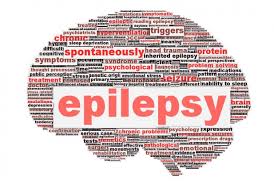What is Epilepsy?
Epilepsy is a central nervous system disorder that causes seizures which affect various mental and physical functions like changes in attention and behavior. This disorder disturbs nerve cell activity in your brain which in turn leads to abnormal behavior, symptoms and sensations involving loss of consciousness.
Symptoms of seizures during epilepsy vary from person to person. Not all the people who have experienced seizures once in a life time are suffering from epilepsy; epilepsy is a group of related disorders; where a patient develops a tendency towards recurrent seizures.
What are the causes of Epilepsy?
In majority of the cases no discernible cause of epilepsy can be traced out. In some cases, it occurs due to some sort of brain damage. Any damage to brain can disturb its normal functioning and lead to seizures. The potential causes of seizures are:
- In elderly people, epilepsy can occur due stroke, Alzheimer’s disease, head trauma
- Traumatic brain injury
- Infections like; Meningitis, Brain Abscess, AIDS
- Genetic Brain problems
- Birth defects
- Problems during birth which deprived the child of oxygen like; twisting or compressing of umbical cord during birth
- Brain Injuries occurred during or near birth
- Brain Tumors
- Abnormal blood vessels of brain
- Any disease that can damage brain
- Using certain medicines like; anti-depressants, tramdol etc.
- Cerebral palsy
- Drugs and Misuse of alcohol
Which are the potential triggers of Epileptic seizures?
In certain patients, some specific substances or circumstances can trigger seizures. These involve:
- Stress
- Insufficient Sleep
- Over consumption of Alcohol
- Using illegal drugs, such as; cocaine, ecstasy
- Opiate based drugs like- heroine, methadone
- Poor health conditions leading to high fever
- Flashing and flickering light
What are the symptoms of Epilepsy?
Symptoms of Epilepsy depend upon the kind of seizures a patient is experiencing. The symptoms which a patient exhibits generally depend upon the part of the brain affected and the reason of epilepsy as well. These are:
- Generalized Seizures: Generalized seizures occur when all the areas of brain (the cortex) are involved. The person experiencing these seizures:
- May cry out
- Make some kind of noises
- Stiffen for several seconds to minutes
- Violent shaking of arms and legs
- Dilated eyes
- The patient appears not to be breathing and generally turns blue
- Noisy breathing
- Biting tongue
- Partial or Focal Seizures: Patients with focal seizures may exhibit the following symptoms:
- Abnormal muscle contraction
- Normally one side of the body gets affected
- Forced turning of the head
- Staring spells
- Abnormal mouth movements
- Lip Smacking
- Repetitive and Compulsive actions
- Chewing without cause
- Tingling sensation
- Hallucinations
- Abdominal pain
- Nausea or Sweating
- Black out spells
- Mood Swings
- Absence Seizures: These types of seizures occur only for few seconds and involve the following symptoms:
- Occur may times a day
- Interfere with school or learning
- Misinterpreted as lack of attention or misbehavior
- Patients may stop walking or stop talking in the mid of the sentence and starts again
- Fumbling of hands
- Lack of alertness about the surroundings
What are the Auras in Epilepsy?
People suffering from epilepsy often get distinctive warning signs before experiencing seizures, these are known as auras. These may vary from person to person and involve:
- Observing strange smell or taste
- Feeling of déjà vu
- Feeling that world is dreamlike or unreal
- Feeling of fear or anxiety
What are the treatments available for Epilepsy?
The most of the patients suffering from epilepsy are treated using drug therapy. The treatment usually depends upon the age, overall health, medical history and as well as recurrence and severity of symptoms. The common options available are:
- If epileptic seizures are occurring due to brain tumor, abnormal blood vessels in brain or bleeding in brain, doctors may recommend surgery.
- Epileptic seizures can be treated with the help of medications known as anti consultants. But be cautious as you can not switch the quantity or dosage of medications at your own will. Consult your doctor before taking any such decision.
- Children suffering form epilepsy disorder are put on Ketogenic diet. This type of diet contains high quantity of fats and low rates of carbohydrates. Children put on Ketogenic diets respond well to this treatment therapy and after few years of practice may stop that diet and remain seizure free.
- Another treatment technique employed by doctors is Vagus Nerve Stimulation technique; where a vagus nerve stimulator is implanted under your chest skin and its wires are connected to the vagus nerve in your neck. The device sends bursts of electric energy to brain via vagus nerve and helps to lessen the seizures.
Contact Braner Pain Clinic for the effective and timely diagnosis and treatment of any of the neurological disorders. Our professional and talented team of physicians is efficient to handle any neurological disability and make you as staunch and sturdy as before.
